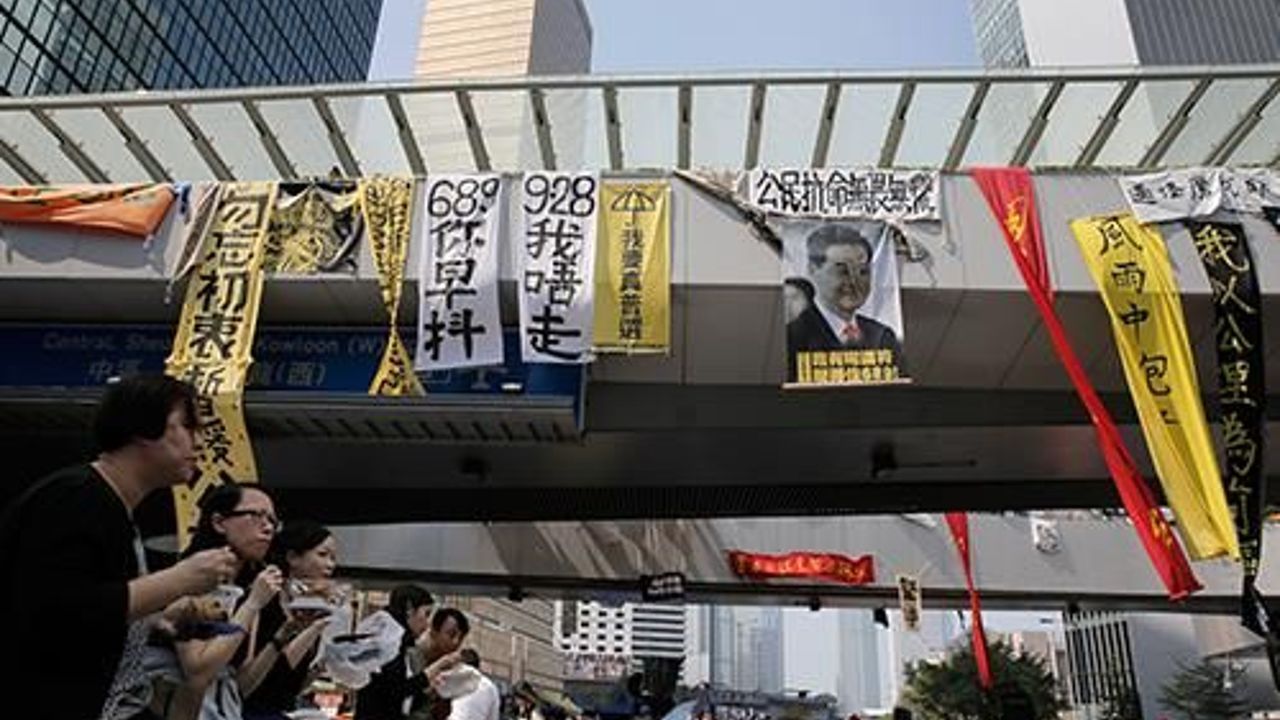Hong Kong party leader resigns after expulsion from Beijing body
World |
Tien says was incorrect to urge HK chief executive to resign without considering his role as Beijing advisory body delegate.

Font Size:
The leader of Hong Kongs Liberal Party resigned Wednesday after being expelled from a Beijing advisory body over his recent statements urging the territorys embattled chief executive to consider stepping down.
After the Chinese Peoples Political Consultative Conference voted to disqualify him, James Tien told reporters in Hong Kong that it had been "incorrect" for him to urge Leung Chun-ying to resign without taking into account his role as a delegate in the advisory body, the South China Morning Post reported.
Tien announced he would resign as leader of the Liberal Party during a meeting Wednesday night.
"If I step down, I can work for the people as a lawmaker in the next two years and speak up on behalf of Hong Kong people," the Post quoted him as saying.
During the advisory bodys meeting, 267 members voted in favor of Tiens expulsion, while two voted against it and three others abstained.
In a plenary session last March, the body had passed a resolution stipulating the need for delegates to "resolutely support the chief executives of Hong Kong and Macau to govern in accordance with laws."
Last Friday, Tien had criticized Leungs governance of Hong Kong, telling a local radio station, "residents are ignoring court injunctions [to disperse] and pan-democrats are being uncooperative," according to the Post.
Early Wednesday, the Hong Kong Economic Journal had cited political analysts as saying that ousting Tien from the body would send a message to "anti-Leung forces" in the former British colony.
As pro-democracy demonstrations enter their second month, the standoff between protesters and the government appears to be at a stalemate. Protesters say they will not go home until the government commits itself to an electoral system with civic nomination for the 2017 chief executive election. Talks last week failed to achieve any breakthrough.
In August, Chinese leaders ruled that while Hong Kongers could choose their next chief executive, the candidates would have to be approved by a 1,200-member nominating committee -- which protesters suspect would be stuffed with party loyalists.
The ongoing civil disobedience movement is seen as the biggest challenge to Beijing's authority in Hong Kong since the handover in 1997.
Anadolu Agency
After the Chinese Peoples Political Consultative Conference voted to disqualify him, James Tien told reporters in Hong Kong that it had been "incorrect" for him to urge Leung Chun-ying to resign without taking into account his role as a delegate in the advisory body, the South China Morning Post reported.
Tien announced he would resign as leader of the Liberal Party during a meeting Wednesday night.
"If I step down, I can work for the people as a lawmaker in the next two years and speak up on behalf of Hong Kong people," the Post quoted him as saying.
During the advisory bodys meeting, 267 members voted in favor of Tiens expulsion, while two voted against it and three others abstained.
In a plenary session last March, the body had passed a resolution stipulating the need for delegates to "resolutely support the chief executives of Hong Kong and Macau to govern in accordance with laws."
Last Friday, Tien had criticized Leungs governance of Hong Kong, telling a local radio station, "residents are ignoring court injunctions [to disperse] and pan-democrats are being uncooperative," according to the Post.
Early Wednesday, the Hong Kong Economic Journal had cited political analysts as saying that ousting Tien from the body would send a message to "anti-Leung forces" in the former British colony.
As pro-democracy demonstrations enter their second month, the standoff between protesters and the government appears to be at a stalemate. Protesters say they will not go home until the government commits itself to an electoral system with civic nomination for the 2017 chief executive election. Talks last week failed to achieve any breakthrough.
In August, Chinese leaders ruled that while Hong Kongers could choose their next chief executive, the candidates would have to be approved by a 1,200-member nominating committee -- which protesters suspect would be stuffed with party loyalists.
The ongoing civil disobedience movement is seen as the biggest challenge to Beijing's authority in Hong Kong since the handover in 1997.
Anadolu Agency
Similar News
Video News

WORLD
26 Mart 2024 - 11:18
Photo News






